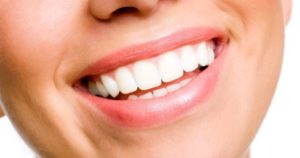Can Wisdom Teeth Cause Headaches?

Do you have a headache all day and don’t know what is causing it?
If you’re between 17 and 24 years old, those aches may be stemming from your teeth. Mild, on-and-off headaches often accompany the growth of wisdom teeth.
Note that severe headaches generally don’t fall into this category. If your headache is particularly persistent or coincides with other symptoms, see a doctor instead.
For now, however, read on to find out why wisdom teeth cause headaches and how you can treat pain caused by wisdom teeth.
How do you know if wisdom teeth are causing your headache?
If you’re experiencing any of the following symptoms alongside periodic headaches, you should talk to a periodontist:
- Bad breath that does not go away with brushing
- Jaw pain or soreness
- A dull, throbbing sensation in your back teeth
- Pain when opening your mouth wide
- Swelling in your gums
- Difficulty swallowing
Other dental problems can also cause these symptoms, so it’s important to talk to your dentist to be sure.
What triggers a wisdom tooth headache?
The growth of wisdom teeth is, in fact, the main cause of various pains.
Emerging wisdom teeth
Your wisdom teeth are the third set of molars located at the back of the mouth. Most people have four wisdom teeth, two above and two below. As they grow and emerge from your gumline, discomfort is normal.
Impacted wisdom teeth
If your wisdom teeth are not growing properly, they are considered to be “impacted.”
Impaction usually occurs when there isn’t enough room for a tooth to emerge and grow, which causes a buildup of pressure.
Impacted wisdom teeth may emerge at an angle, get stuck in place, and/or press against other molars – all of which can cause damage.
When wisdom teeth grow in a mouth that does not have enough space, other teeth can be forced to move, resulting in a false bite.
An improper bite can force your lower jaw to compensate, causing pain and suffering, including headaches.
Should I be concerned about my wisdom teeth?
If you have serious headaches that won’t go away, you may want to look for other symptoms that may indicate your wisdom teeth are impacted.
Extracting your wisdom tooth is typically the easiest and safest way to deal with impacted wisdom teeth – and, even if it’s not an issue with your wisdom teeth, your dentist can diagnose most oral health issues.
Remember: If in doubt, talk to your dentist.
Remedies for wisdom tooth headaches
Rinse with salt water
Warm water washes with saline are a popular remedy for protruding teeth.
Keeping your mouth free of bacteria is especially beneficial for emerging wisdom teeth.
Medication
Prescribed or over-the-counter (OTC) medication is a proven remedy for headaches, even if wisdom teeth cause them.
Follow the instructions on the label, and do not take more than the recommended dose.
Hot and cold therapy
Applying an ice pack to the cheeks can relieve pain, inflammation, and swelling, while heat packs can relax tense muscles.
If you are experiencing any of the symptoms described here and would like further advice, schedule an appointment today.
Or:
- Call us at 425-453-1010
- Email us at info@doctorperio.com
Our two offices proudly serve Bellevue, WA, Issaquah, WA, and the Greater Seattle area.


